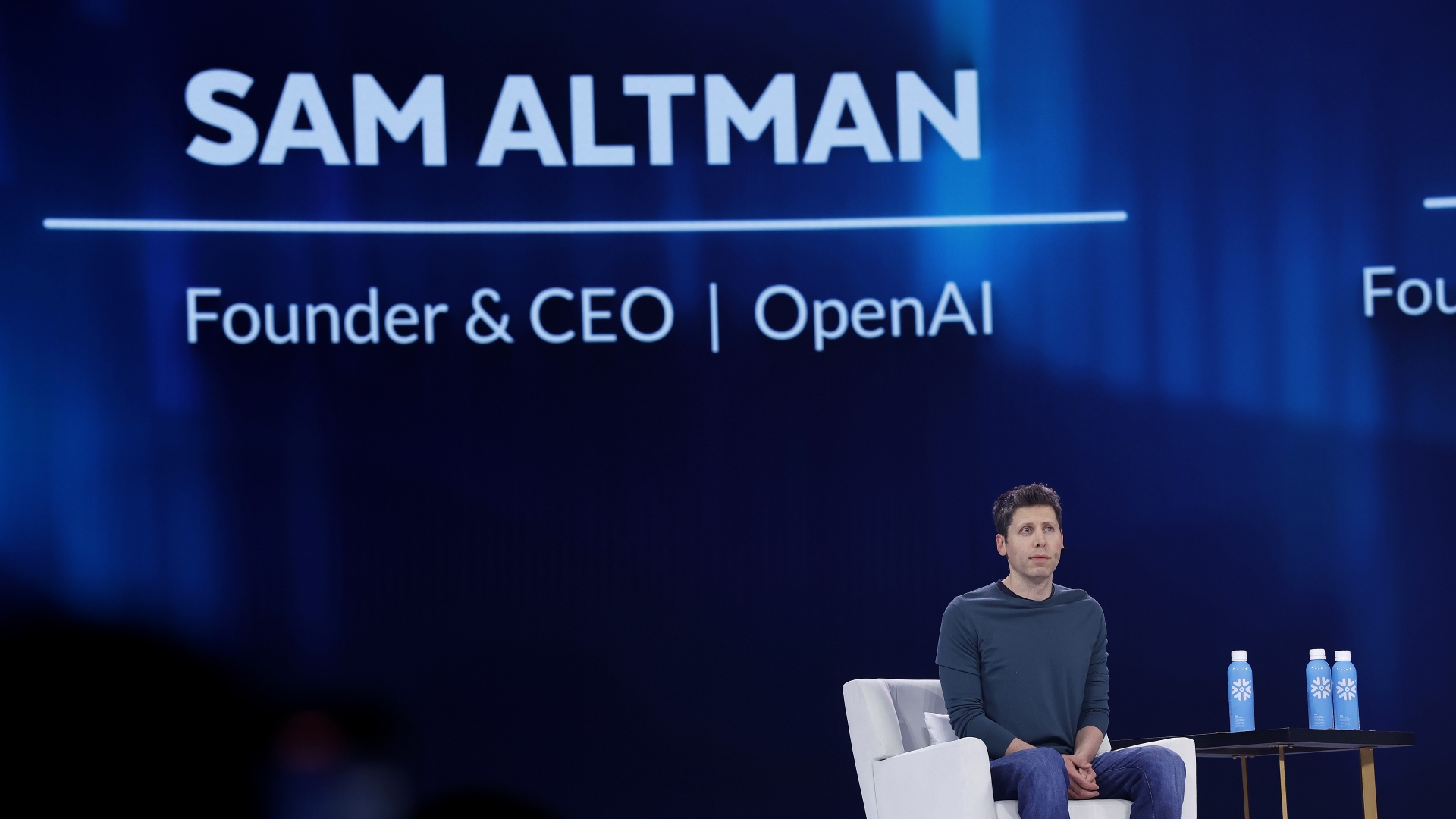OpenAI plans a small family of devices to reinvent human-computer interaction — but Sam Altman says "it'll take some time"
OpenAI's CEO claims today's systems weren't developed for an AI-driven world.

All the latest news, reviews, and guides for Windows and Xbox diehards.
You are now subscribed
Your newsletter sign-up was successful
Over the past few years, at least since ChatGPT launched in 2022, OpenAI has made some significant breakthroughs in the generative AI landscape with ambitions to achieve the coveted AGI (artificial general intelligence) benchmark.
The AI firm has encountered several roadblocks along the way, including insufficient compute resources, some copyright infringement lawsuits, and immense pressure from investors to change its business into a for-profit venture.
However, the company's goal isn't fixed on AI alone. Since last year, the company has made subtle moves suggesting that it could be getting ready to make its debut in hardware as well.
For instance, former Apple lead designer Jony Ive joined OpenAI to lead its design efforts and possibly help develop the rumored device that could lead to the biggest tech disruption since the iPhone launched in 2007. The ChatGPT maker also acquired the designer's AI device startup, io, for $6.5 billion.
OpenAI CEO Sam Altman has been rather vocal about current computers not being designed to thrive in an AI-driven world. Even Google CEO Sundar Pichai echoed similar sentiments, suggesting that it's next to impossible to achieve coveted benchmarks like AGI (artificial general intelligence) with today's systems.
However, Altman had previously indicated that the AI revolution won't require new hardware. Interestingly, he claimed that if it does, users will be "happy" to have a new device anyway.
More recently, the executive subtly revealed OpenAI's potential plans for the future in the hardware department. While speaking at the Welt AI Summit in Berlin, Sam Altman indicated:
All the latest news, reviews, and guides for Windows and Xbox diehards.
"I think we've only had one or two revolutions in how we use computers in a long time, We had the mouse and the keyboard and the idea of the monitor displaying this sort of windowed system and that was a breakthrough for sure."
While Altman acknowledges that hardware has evolved into a much more complex concept with touch devices joining the fray, he claims that the world is yet to tap into the real power of AI.
Sam Altman:OpenAI plans a "small family of devices" that will reimagine how humans interact with computersIt's not coming soon.But the goal is to move past today's interfaces so you can give long, complex commands and trust the system to execute them pic.twitter.com/TdBFqVuZIHSeptember 26, 2025
Fundamentally, we've never had something as powerful as AI. Computers can understand what we want, can think, and let us reimagine what it could mean to use a computer.
OpenAI CEO, Sam Altman
The executive indicated that the company is still exploring the idea. "It'll take us quite some time." added Sam Altman. "Do not expect anything very soon." However, the CEO indicated that OpenAI will make a small family of devices.
Altman indicated that the devices will look good, but more importantly, they'll redefine what it means to use a computer, work, play, and live your life. It'll be interesting to see if OpenAI cracks a dent in the hardware landscape and how it will integrate AI across these devices.

Follow Windows Central on Google News to keep our latest news, insights, and features at the top of your feeds!

Kevin Okemwa is a seasoned tech journalist based in Nairobi, Kenya with lots of experience covering the latest trends and developments in the industry at Windows Central. With a passion for innovation and a keen eye for detail, he has written for leading publications such as OnMSFT, MakeUseOf, and Windows Report, providing insightful analysis and breaking news on everything revolving around the Microsoft ecosystem. While AFK and not busy following the ever-emerging trends in tech, you can find him exploring the world or listening to music.
You must confirm your public display name before commenting
Please logout and then login again, you will then be prompted to enter your display name.
